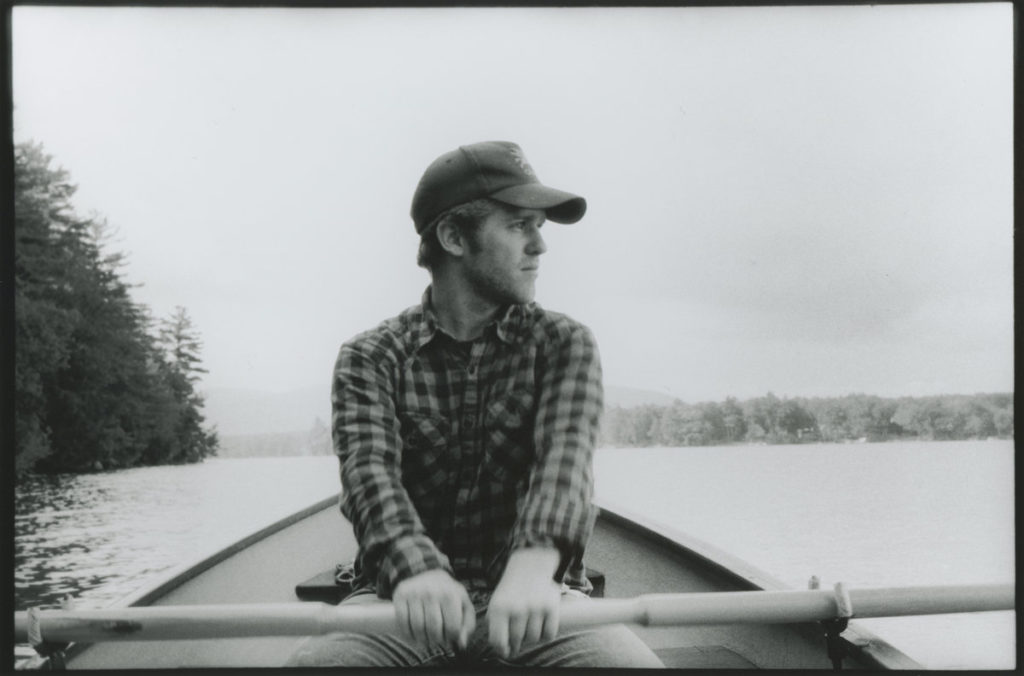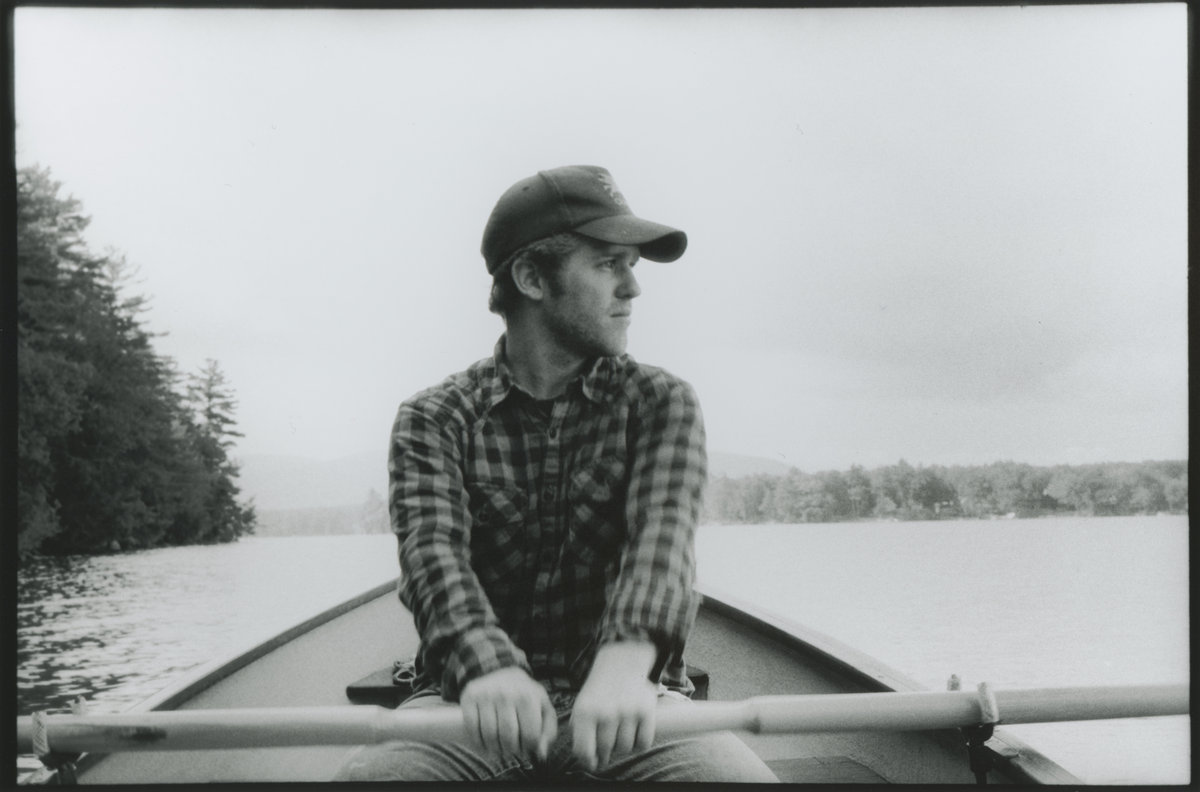Dietrich Strause “How Cruel That Hunger Binds” : An Interview
Dietrich Strause has been a mainstay on the Boston/Cambridge music scene for years. His music bridges gaps–between folk and folklore and across genres. He recently released a new album, How Cruel That Hunger Binds and will play a release show at The Oberon in Cambridge on Thursday, September 15. We got a chance to talk with Dietrich and get his thoughts on this new album, which is a total gem.

RLR: The songs on How Cruel That Hunger Binds feel like they want a more complex sound than you get with just singing and playing guitar. Of course, then I heard you play them solo on WUMB and felt wrong about that.
DS: Good! That’s the idea–that it can work in both settings.
RLR: For this album, how did the sound you were going for impact the lyrics and vice versa?
DS: For a couple of songs, they started as simple songs. They’re concise, short songs, many of them are less than three minutes long. We could develop them sonically, because if you don’t need more lyrical content, don’t force it. The story is finished, so you can focus on developing the sound.
When using horns on a record like this, you have to really arrange the parts to make them fit together in the right way harmonically, so it doesn’t sound like a mess. It gives it that composed feeling, out of necessity, which makes the whole production feel developed.
RLR: As you said, the horns on this album take on a big role, especially in setting the tone–“Around the World,” is probably the best example of that. How do you think being a multi instrumentalist affects your work as a songwriter?
DS: I’ve always put a lot of time into writing melodies, picking out notes and not just chords. I think that comes from the trumpet being my first instrument, because you play single notes, and most of the time you play the melody.
RLR: Lyrically, this album is very evocative of place and location. It’s steeped in references to seasons, and not the “natural” world in a pastoral sense, but in a way of finding your bearings. How do you think about that pattern, and how these songs speak to each other as an album?
DS: I talked recently with a friend about this – so I’m trying to sum up a two-hour conversation into two minutes. On my last record, I was really into lore and mythology and there is definitely some carry over, like with the imagery in “Lying in Your Arms,”–knights and errant hearts; in “Home from the Heartland,” there’s sort of midwestern revivalist imagery.
Anais Mitchell quoted somebody as saying that a lot of lyricism comes down to bringing these ghosts that everybody has – you know, like the red pick up, or dancing shoes – bringing those ghosts along to the listener. And the goal is to bring those ghosts together, only so much so that people feel comfortable and familiar but not so much that feel like they’ve been there before. So I think of it as a kind of line–how close can I get to that line without reenacting something.
RLR: Over the past few years, you’ve gone up to Lake Winnipesaukee for a songwriters retreat. How has that shaped your work?
DS: Every year when I go to that, I spend the month or so beforehand in a process of collecting ideas. I start with tackling something I can do in a day so I feel a sense of accomplishment before moving on to the harder stuff. A lot of these songs are from that experience. And there’s not a ton of imagery about being on a lake or an island, but there is a lot of solitude. When I’m there, I try to spend the days by myself. There are no distractions on the island, no phone service, no internet. I think that sense of solitude has come out in the music.
It’s forced me in a different direction sometimes. I am there with friends, in a safe spot. You can write a song as more of a joke and play it in the evening without worrying about judgement. I wrote “Spring Has Sprung” floating in a canoe one afternoon and thought of it as a joke but my friends on the island encouraged me to continue working on it.
RLR: I read an interview you did recently with Glide in which you reference gospel music, and you can really hear that on a track like “Home from the Heartland,” with that organ that lulls and soars and the hymn-like “The World Once Turning.” How do you see the influence of gospel in your development as an artist?
DS: I’ve thought about this for a long time. I’ve never felt totally at home in the Americana genre. I‘m not crazy about the banjo or the mandolin. A lot of the music I love is music I don’t think I have the capacity to create. I listen to gospel music and R&B – Aretha Franklin, Allen Toussaint, artists like that. That’s the music that gets me going. If I triangulate R&B and Americana, you get to gospel and New Orleans; you get to music written on pianos. The piano gets overlooked by Americana bands because it’s a pain to tour with and you need to be really good to make it work in a band. Once I wrapped my head around that connection, I felt more comfortable striving in the Americana genre.
One thing I’ve pushed myself to do is to answer the question: what is the point of playing music? Why write songs and not write poetry or fiction? And I think you have to infuse it with joy, even if it’s a sad song. That’s something that R&B does really well.
RLR: You’ve been playing this album out quite a bit around town – at Passim during campfire, at TOAD over the summer – but with slightly different configurations of musicians. How have those different lineups made you think about the songs in different ways?
DS: I’ve had a lot of these songs in my back pocket for a couple of years. When I go out to play a show I’m doing it because I want to get something out–I want to play new songs. Over the years as I’ve played them in different configurations, some songs start small and they get really big and then we figure out what’s necessary. Does it need to be loud and fast, or groovy and gentle?
You can see Dietrich play in Cambridge at The Oberon on September 15. It’s part of a new series called The Sound Society, curated by Sam Kassirer. Tour dates, including stops in NYC and at AmericanaFest can be found here. Get the new album (it’s so damn good) here.
Photo Credit: Rose Cousins

